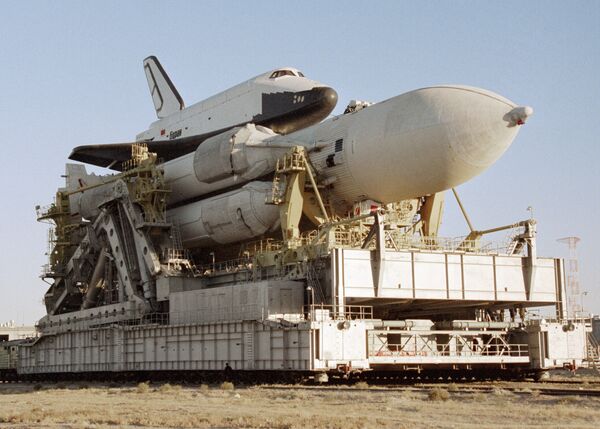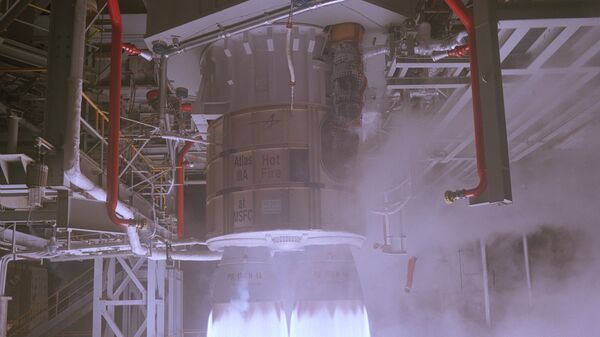The United States is buying Russian rocket engines not because of any problems with its domestic engine engineering programmes, but to subsidize Russian rocket scientists and to prevent them from seeking employment in Iran or North Korea, United Launch Alliance CEO Tory Bruno has intimated.
“The [US government] asked us to buy [Russian engines] at the end of the Cold War in order to keep the Russian Rocket Scientists from ending up in North Korea and Iran,” Bruno tweeted, responding to a question about what motivates ULA to continue buying the Russian-made RD-180s.
The USG asked us to buy them at the end of the Cold War in order to keep the Russian Rocket Scientists from ending up in North Korea and Iran
— Tory Bruno (@torybruno) April 16, 2020
Asked why the US is continuing to use the engines so many years later, Bruno stressed that his first decision after becoming CEO of ULA in 2014 was “to start an American engine replacement.” The official promised that that the engines would be used to power the next-gen Vulcan heavy lift vehicle next year, when that rocket is expected to make its maiden flight.
Commenting on Bruno’s tweet, Roscosmos chief Dmitri Rogozin called it a “strange explanation.”
“It turns out that a US company is buying our RD-180 engines not because they are the most efficient and reliable in their class (about 90 percent trouble-free launches on the Atlas rocket) but ‘so that [our scientists/rockets] will not end up going to the Iranians and North Koreans’,” Rogozin wrote.
Some of Bruno’s followers similarly found the ULA chief’s explanation incomplete, pointing out that the engine deal gave the US access to “oxygen-rich closed cycle engines, which the Soviets/Russians perfected, but the US hadn’t,” and that the US would be using this same technology for its new ‘homegrown’ Vulcan engine.
Plus, it gave us an exposure to oxygen-rich closed cycle engines, which the Soviets/Russians perfected, but the US hadn’t. Now, the Vulcan will fly on an American engine using this technology.
— Mike Zaharis (@etrm_mz) April 16, 2020
“For that kind of money, you could buy up all the Russian Rocket Scientists in bulk. And they definitely do not end up in North Korea and Iran,” another user suggested, to which Bruno responded that “we do not buy people.”
That was a very strange strategy. For that kind of money, you could buy up all the Russian Rocket Scientists in bulk. And they definitely do not end up in North Korea and Iran. Instead, you actually funded the transfer of their technology to North Korea and Iran.
— PopulismMustDie (@mir_serg) April 16, 2020
Since 1999, Lockheed Martin has used the RD-180 to power at least 86 Atlas III and Atlas V launch vehicles into orbit. According to Energomash, the engines’ manufacturer, the US has now received well over 100 of the engines as of late 2019. Additionally, Energomash also produces the RD-181 for the Antares, an expendable rocket developed by Orbital Sciences Corporation, a subsidiary of Northrop Grumman.
US lawmakers began seeking to curb the purchase of RD-180s in 2014 amid the souring of Russian-US relations over the Ukraine crisis, and successfully passed a law obliging Washington to develop its own next-gen rocket system. However, these efforts have faced repeated setbacks, and the Senate has permitted US rocket makers to continue purchasing RD-180s until at least 2022.
The RD-180 is a derivative of the RD-170/17 series of rocket engines, created for the super-heavy Energiya launch vehicle, designed to shuttle up to 100 tonnes of cargo into low Earth orbit. It was this rocket that was used to launch the Buran shuttle into space. In the late 1980s, this rocket was envisioned as the potential launch vehicle that would help in the creation of more complex space stations and, eventually, even the assembly of large spacecraft capable of making flights to the Moon or Mars.




